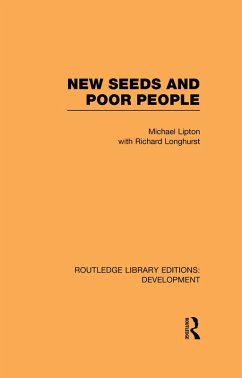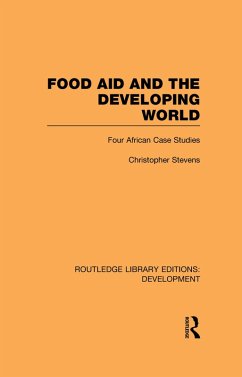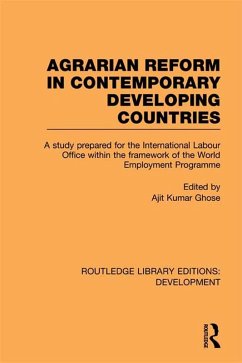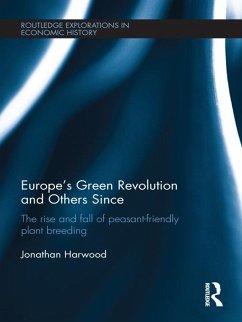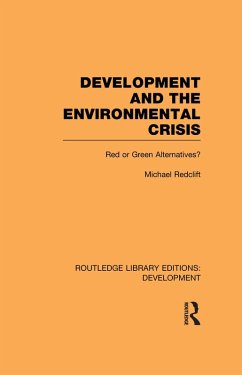
The Green Revolution Revisited (eBook, ePUB)
Critique and Alternatives
Redaktion: Glaeser, Bernhard
Versandkostenfrei!
Sofort per Download lieferbar
45,95 €
inkl. MwSt.
Weitere Ausgaben:

PAYBACK Punkte
23 °P sammeln!
The Green Revolution - the apparently miraculous increase in cereal crop yields achieved in the 1960s - came under severe criticism in the 1970s because of its demands for optimal irrigation, intensive use of fertilisers and pesticides; its damaging impact on social structures; and its monoculture approach. The early 1980s saw a concerted approach to many of these criticisms under the auspices of Consultative Group on International Agricultural Research (CGIAR). This book, first published in 1987, analyses the recent achievements of the CGIAR and examines the Green Revolution concept in South ...
The Green Revolution - the apparently miraculous increase in cereal crop yields achieved in the 1960s - came under severe criticism in the 1970s because of its demands for optimal irrigation, intensive use of fertilisers and pesticides; its damaging impact on social structures; and its monoculture approach. The early 1980s saw a concerted approach to many of these criticisms under the auspices of Consultative Group on International Agricultural Research (CGIAR). This book, first published in 1987, analyses the recent achievements of the CGIAR and examines the Green Revolution concept in South America, Asia and Africa, from an 'ecodevelopment' standpoint, with particular regard to the plight of the rural poor. The work is characterised by a concern for the ecological and social dimensions of agricultural development,which puts the emphasis on culturally compatible, labour absorbing and environmentally sustainable food production which will serve the long term needs of developing countries.
Dieser Download kann aus rechtlichen Gründen nur mit Rechnungsadresse in A, B, BG, CY, CZ, D, DK, EW, E, FIN, F, GR, HR, H, IRL, I, LT, L, LR, M, NL, PL, P, R, S, SLO, SK ausgeliefert werden.






